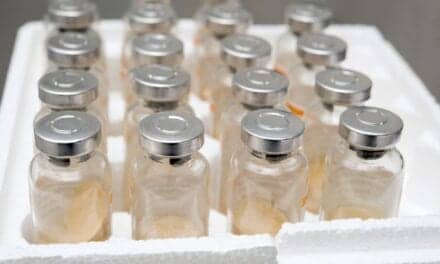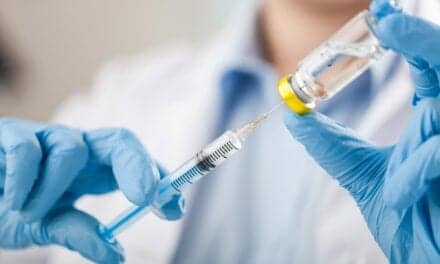by Michael D. Sallah and Mike Wereschagin, Pittsburgh Post-Gazette
This article was originally published by ProPublica and co-published with Pittsburgh Post-Gazette. ProPublica is a Pulitzer Prize-winning investigative newsroom. Sign up for The Big Story newsletter to receive stories like this one in your inbox.
Philips Respironics received thousands of complaints about a dangerous defect in its breathing machines but kept them secret for years as stock prices soared. The devices, including the popular DreamStation for sleep apnea, went to children, the elderly and veterans before the global giant announced a massive recall.
After tests showed that breathing machines made by Philips Respironics could spew dangerous particles and fumes into the lungs of patients, the company in April 2021 decided to stop shipping the devices from its factories near Pittsburgh.
Philips notified the Food and Drug Administration and said it was considering a recall.
But for the distributors of the devices, the company had another message: Keep selling them.
Despite the findings of its own scientists that showed the machines posed critical risks to patients, Roy Jakobs, now the CEO of parent company Royal Philips, told his employees that the distributors could continue to sell the devices in their inventory, according to testimony in federal court.
The revelations that unfolded during a hearing in Pittsburgh last week over the parent company’s potential liability for damages casts new light on the inner workings of a global corporation accused of risking the health of patients who used its sleep apnea machines and ventilators, in some cases to stay alive.
“They’re still telling customers who have these devices that they can keep using them,” Caleb Seeley, a lawyer whose firm represents thousands of plaintiffs in claims against the company, told U.S. District Judge Joy Flowers Conti.
An investigation by the Pittsburgh Post-Gazette and ProPublica published last month showed that Philips kept secret more than 3,700 complaints about the faulty devices over the course of 11 years before eventually initiating one of the largest recalls of its kind.
While lawyers for Royal Philips argued in court that the parent company should be shielded from claims and that the responsibility lies with the U.S. subsidiary, Philips Respironics, attorneys representing thousands of patients countered that decisions over the safety of the company’s operations were made at the highest levels of the Dutch corporation.
Philips said in response to questions from the Post-Gazette that Jakobs approved the sale of the machines held by distributors because Philips was still assessing the risks of the devices and its “understanding of the issue was still evolving.”
The company launched a recall to pull the machines from the shelves in June 2021 — two months after the halt on shipping — when additional data became available, Philips said in a statement.
The decision was made “after careful consideration of a reasonable worst-case scenario and in an abundance of caution,” the company said.
But for the two months leading to the recall, Philips did not warn the public that the company had found the risks to patients to be “unacceptable” and that foam breaking down in the devices was emitting chemicals that could cause “life-threatening” injuries or “permanent impairment,” records show.
The move by the company to allow the sale of the defective devices while its own experts were warning about the dangers drew sharp criticism from public health experts interviewed by the Post-Gazette and ProPublica.
“It’s disturbing to hear that they put a hold on the machines at the factory and then it’s being distributed” by the suppliers, said Dr. Robert Steinbrook, director of Public Citizen’s Health Research Group in Washington, which lobbies on behalf of patient safety. “It doesn’t make a lot of sense.”
The evidence disclosing Philips’ directive, which was presented in a slideshow at the Oct. 17 hearing, is the latest in a series of efforts by plaintiffs in court to show how decisions by the company delayed safety measures in what would grow into a worldwide health crisis.
Since the recall two years ago, Philips has changed course and said further tests have shown there is no long-term health impact from the foam — prompting the FDA to issue its own statement on Oct. 5 to say the company’s tests have not been adequate to “fully evaluate the risks” posed to users.
Though medical experts say it can take years to establish any links between the machines and illnesses, FDA records show at least 2,000 cases of cancer have been reported by health care providers and users of the devices, along with 600 kidney and liver ailments and 17,000 cases of respiratory infections.
During the court hearing last week, lawyers for the plaintiffs argued that top executives in Amsterdam for years were aware of the problems taking place in the U.S. involving the machines.
Jakobs had been chief business leader since 2020 of the company’s Connected Care unit, which oversaw the breathing devices. He was named to the CEO position in 2022.
Lawyers for the plaintiffs, who are suing Philips in hundreds of injury claims and a class-action suit to force the company to pay for medical monitoring, told Conti that former CEO Frans van Houten also took on a key role in the U.S. operation.
While leading the company in 2015, van Houten flew to Washington to meet with the FDA to discuss safety issues that had emerged at the Philips plant in Cleveland, Seeley told the court.
In a case that was unrelated to the breathing machines, the company had received warning letters from the FDA over a failure to file reports to the government about problems involving medical imaging devices made at the facility, records show.
During the visit, van Houten met with Jeff Shuren, the head of the FDA division that oversees medical device safety, and Robert Califf, now the agency’s commissioner, FDA records show.
Seeley said van Houten reportedly assured the agency’s top administrators that Philips would be making greater strides to meet safety thresholds.
The previous year, Philips temporarily shut down the Ohio facility after the FDA inspected the plant and found “manufacturing control” problems that had not been properly addressed, the company said.
Philips said in a statement that “we regularly engage with the FDA, and we are committed to continuing to do so.”
Since the June 2021 recall of the breathing devices, Jakobs has attempted to distance the parent company from the crisis, saying during an earnings call in May that the complaints about the machines were handled by the U.S. subsidiary.
“They did some action and they closed it and carried on,” he said to shareholders.
Jakobs and van Houten have previously declined to comment to ProPublica and the Post-Gazette on the company’s handling of the tainted machines. After the recall, then-CEO van Houten said, “I very much regret the impact of the … recall on patients, care providers and shareholders.”
The fight by the parent company to separate itself from the myriad lawsuits comes as more plaintiffs step forward to join the legal cases against Philips and as government scrutiny of the company’s actions deepens.
Just days after the Post-Gazette and ProPublica published the initial investigative story in September, top members of Congress called for immediate action, with Sen. Richard Blumenthal, D-Conn., demanding an investigation and a crackdown on the company by the Justice Department.
Conti said during the hearing last week that the motion by Philips to dismiss the parent company from the proceedings could have sweeping implications for some of the world’s largest corporations. One of the reasons: Multinational companies are made up of many different subsidiaries that operate in different countries with various levels of liability.
Royal Philips controls a global empire with subsidiaries operating across more than 100 countries, and it reported more than $18 billion in revenue last year. Top executives of an operation that large can’t micromanage every plant in their domain, Michael H. Steinberg, a lawyer for Royal Philips, argued at the hearing.
“Philips has [quality] controls,” Steinberg said. “Whether people follow those controls, that’s a separate issue.” Its lawyers argue the company should only have to fight one of the allegations against it: negligence in how it handled the recall — and even then, only for complaints filed in Pennsylvania, the jurisdiction of the federal court hearing the case.
In several high-profile cases, courts have shielded major parent companies from the liability of their subsidiaries, setting legal precedents that entire corporations have organized themselves around, the lawyer for Philips told the judge. “Corporations are trying to be efficient, trying to mitigate risk,” Steinberg said.
Lawyers for the plaintiffs countered that the legal protections normally given to parent corporations don’t apply in the Philips case. Seeley painted a picture of an organization with few boundaries, where top executives like Jakobs weighed in on decisions as minute as what Philips Respironics’ employees should tell their customers.
“Philips is unusual. It’s not the norm,” Seeley said.
One legal expert reached by the Post-Gazette said the evidence in the case, including the actions taken by the top corporate leaders, may ultimately be used in legal matters beyond the liability battle.
“The information that comes out is about who knew what and when did they [know] it,” said Michael Gonzalez, an Ohio lawyer who advises companies on health care compliance. “It’s not only about liability, but the culpability for [violating] the rules.”
Madris Kinard, a former FDA analyst who has examined many of the complaints filed with Philips about the defective machines, said the company was aware of the breakdowns in the devices years before the recall. “They could have acted earlier, and they could have acted with integrity when learning of the risks posed by the foam,” said Kinard, founder and CEO of the York, Pennsylvania-based health data group, Device Events. “This Philips recall is going to be held up as an example of what not to do.”










